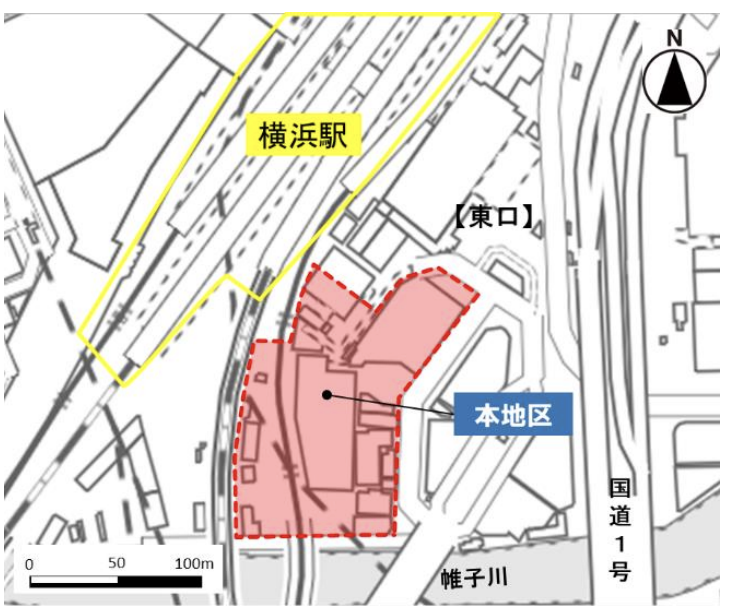When letting go of real estate, there are two options for the sale method: "agency" and "purchase. In particular, "real estate purchase" is a method suitable for those who hope for a sure sale at an early date. However, many people have the anxiety, "Will not a purchase sell at a low price? However, many people have concerns such as "Will the purchase result in selling at a low price?
In this article, the merit and demerit of a real estate purchase are accurately understood, and thepoint to draw out a high price appraisal as much as possible is explained. We will deliver practical know-how based on our experience cultivated as a professional of real estate, such as purchase market prices, points to note in selecting a vendor, and even failure cases and their countermeasures.
We hope that those who are considering a real estate purchase will be able to realize a satisfactory deal with reference to this article.
What is a real estate purchase? Thorough comparison of differences with agency
Mechanism and characteristics of a real estate purchase
A real estate purchase is a sales method in which a real estate company purchases a housing directly from a seller. Unlike general agency sales, there is no process of looking for a buyer, and since the real estate company directly purchases the property, it has the great feature of completing the sale quickly and surely.
The greatest appeal of a real estate purchase is that it can be converted into cash in a short period of time without conducting sales activities. This is a particularly effective option for those who are having trouble repaying their mortgage or want to sell inherited real estate quickly, or when there are time constraints.
Clear difference between purchase and agency
There are "purchase" and "agency" in the sale method of real estate, and each has its own characteristics. Let's compare the main differences in the following table.
| Comparison item | Real estate purchase | Real estate agency |
|---|---|---|
| Buyer | Real estate company directly purchases | Third party (general purchaser) |
| Sale period | Minimum 1 week to 1 month | 3 months to 6 months or more |
| Sale Price | Approx. 60-80% of market price | Close to market price (market rate) |
| Brokerage Fee | Not required | Necessary (3% of sales price + 60,000 yen + tax) |
| Certainty of sale | High (immediate contract possible) | Depends on the buyer (uncertainties exist) |
| Liability for non-conformity to contract | Often exempted | May be incurred by the seller |
As described above, purchase is suitable for the person who values early sale and simplicity of procedure, while mediation is suitable for the person who wants to sell as high as possible. Since which is better depends on the needs and circumstances of the seller, it is important to choose after clarifying one's own priorities.
Reason why the purchase price is lower than the market price
In a real estate purchase, the purchase price is generally 60-80% of a market price (assumed sale price in agency). Reasons for this price difference include the following
-
Because resale is assumed: The buyer's business model is to earn a profit by remodeling, etc. and reselling the property after purchasing it. Therefore, the price is set based on resale costs and profit.
-
Because they bear the risk: Since the vendor purchases the property with its own funds, it bears the risk of unsold properties due to changes in market trends.
-
The price of a speedy sale: In exchange for the benefit of an early sale, the relationship involves a certain concession by the seller in terms of price.
The lower purchase price is an unavoidable aspect of this business structure. However, it is possible to sell the property under the best possible conditions by following the points for a high appraisal as described below.
Points for drawing out a high appraisal in a real estate purchase
Importance of an appraisal request to two or more contractors
The most important point to obtain a high appraisal in a real estate purchase is to request an appraisal to several contractors. Since different buyers have different property types, regions, and resale strategies that they specialize in, there can be a large difference in assessed value even for the same property.
In the case of buyers in particular, we recommend that you compare assessments from at least three or more companies, as purchase prices fluctuate depending on the assumed price and resale strategy at the time of resale. In recent years, it is possible to easily receive assessments from multiple companies by using bulk appraisal sites.
Point to maximize the appeal of the property
During the appraisal process, conveying the property's appeal to the maximum extent possible may increase the appraisal value. The following are points that should be particularly appealing.
- Location: proximity to stations, sunlight, access to commercial facilities, etc.
- Building condition: renovation history, maintenance status, updated equipment
- Special features: views, security facilities, ample storage space, etc.
- Environmental appeal: quiet living environment, proximity to parks and schools, etc.
Organizing this information in advance and conveying it concretely at the time of appraisal will lead to a fair evaluation.
How to identify a builder with a good track record of purchase
Selecting a reliable buyer is also important to achieve a high valuation. The following points should be considered when selecting a vendor.
- Abundant purchase track record: A vendor with a particularly strong track record of purchasing the same type of property as yours.
- Transparent basis for assessment: A clear explanation of why the price is the way it is.
- Promptness and politeness of response: Good communication and follow-up
- Confirmation of word-of-mouth and reputation: Internet reputation and referral information from acquaintances
- Confirmation of the license number of the real estate transaction business: Check whether the license is held or not and whether it has been renewed
It is also important to determine if the builder is trustworthy by actually talking to the person in charge. The content of the answers to questions during the appraisal and the attitude of the vendor will also reveal the vendor's attitude.
Preparation in advance to increase the value of the property
Before the purchase appraisal, a little effort can be made to increase the property value. It does not necessarily require extensive remodeling, but small preparations such as the following will lead to a higher valuation.
- Tidying and cleaning: Keep the property neat and clean
- Performing small repairs: Repairing noticeable areas such as scratches on the walls and problems with the water system
- Prepare necessary documents: certified copy of registration, building permits, warranties for equipment, etc.
- Organize repair history: Organize the history of repairs and maintenance done in the past.
In particular, since buyers assume resale, the closer the property is to a ready-to-sell condition, the more likely it is to lead to a higher appraisal.
Determinants of the real estate purchase sale price market and assessed value
Market price of real estate purchase by property type (comparison with market price)
The market price of real estate purchase differs depending on the property type. The following table summarizes general purchase price quotations in comparison with market prices (agency prices).
| Real estate type | Purchase market price (compared to market price) | Remarks |
|---|---|---|
| Condominiums | 70-80% of market price | In popular areas, it can be more than 80%. |
| Detached Houses | 60-75% of market price | Varies greatly depending on location and building condition |
| Land | 60-70% of market price | Rebuildable, well-shaped lots are highly valued |
| Investment property | 65-75% of market value | Properties with high profitability will be valued higher. |
However, this is only a guide and will vary depending on the condition of the property, local market trends, and the buyer's strategy. It is important to obtain assessments from multiple vendors in order to know the actual assessed value.
Major Determinants Affecting the Purchase Price
The following are the main factors that affect the purchase appraisal value. These factors are evaluated comprehensively to determine the final assessed value.
-
Location
- Distance from the station
- Availability of surrounding facilities (commercial facilities, schools, parks, etc.)
- Sunlight and view
- Quietness of the living environment, etc.
-
Age and condition of the building
- Structure and age of the building
- State of maintenance and management
- Remodeling history
- Update status of facilities
-
Marketability
- Transaction examples of similar properties
- Local real estate demand
- Economic conditions and interest rate trends
- Seasonal factors
-
Property characteristics
- Floor plan and exclusive area
- Availability of parking space
- Common facilities (for condominiums)
- Shape of the land and the condition of the street (in the case of detached houses and land)
Based on these factors, the buyer will offer a purchase price considering its own resale strategy and profit plan.
Trends in the market price of purchase by region
The market price of real estate purchase varies greatly by region. In general, purchase prices tend to be close to market prices in areas of population growth and metropolitan areas, but the differences can be large in areas with declining populations.
For example, in urban centers such as the 23 wards of Tokyo and Osaka City, purchase prices may rise to as much as 80% of market value in some cases due to expected demand at the time of resale. On the other hand, in depopulated rural areas, the price may be as low as 50% of the market price due to the difficulty of resale.
Based on these regional differences, it is important to compare and consider how much your property will be valued by requesting an appraisal from multiple buyers.
Real Estate Purchase Process and Timeline
Overall Process of Purchase and Sale
The flow of a sale by real estate purchase is simpler than a typical agency sale. The following are the basic steps
-
Advance preparation and information gathering
- Confirmation and preparation of necessary documents
- Approximate understanding of the real estate market price
- Research of buyers
-
Request assessments from multiple vendors
- Use of bulk appraisal sites or individual contact
- Submission of documents and provision of photos
- Adjustment of the schedule for an on-site appraisal
-
Assessment and price presentation
- Implementation of onsite assessment
- Presentation of purchase price from each company
- Comparison of conditions
-
Determination of buyer and contract
- Final negotiation and determination of the vendor
- Confirmation of contract details
- Conclusion of purchase agreement
-
Settlement and delivery
- Settlement of balance
- Delivery of the property
- Registration of transfer of ownership
-
Finalization of income tax returns as required
- Finalization of transfer income
- Confirmation of application of special deductions
These processes are usually completed within one month and may take as little as two weeks in case of urgency.
Time from appraisal to contract and necessary preparations
The following is a summary of the time required for each step of the real estate purchase process and the preparations necessary at each stage.
| Process | Duration required | Necessary Preparations |
|---|---|---|
| Preliminary Preparation | 3-7 days | Certified copy of registration, property tax notice, floor plan, building permit documents, etc. |
| Request for valuation | 1 to 2 days | Property information, desired time of sale, contact information, etc. |
| On-site appraisal | 1-2 hours/company | Property cleaning and tidying, preparation of repair history |
| Receipt of appraisal results | Same day - 3 days | Charts and documents to keep and compare each company's appraisal reports |
| Selection and negotiation of contractors | 1 to 3 days | Listing of questions, organization of points for negotiation of terms and conditions |
| Conclusion of contract | 1 day | Seal registration certificate, personal seal, ID card, etc. |
| Settlement and delivery | 1 day | Keys, instruction manual for equipment, account for transfer of settlement money, etc. |
The entire process takes a minimum of 2 weeks, and usually 3 weeks to 1 month. This compares to 3-6 months for an agency sale, indicating that a sale can be completed in a very short period of time.
Important Confirmations at the Time of Purchase Contract
Be sure to confirm the following important points when concluding a purchase contract.
-
Conditions for finalizing the purchase price
- Whether the price at the time of contract is the final price
- Whether there are any cases where the price is reduced after the contract is signed
- Existence and content of any special clauses
-
Delivery conditions
- Clearly set delivery date
- Handling of leftover items
- Scope and responsibility for restoration to the original condition
-
Handling of liability for nonconformity to contract (liability for defects)
- Scope and conditions of indemnification
- Exception cases
-
Burden of expenses
- Who bears the cost of registration of transfer of ownership
- Method of settling property taxes, etc.
- Classification of burden of other fees
-
Conditions for cancellation
- Possibility and conditions of contract cancellation
- Existence and amount of penalty fees
Checking these points in advance and making sure they are clearly stated in the contract will help prevent problems later on. If there are any points that are unclear, be sure to ask questions before signing the contract, and make sure you are satisfied with the contract before signing it.
Precautions and Checklist to Avoid Failure in Real Estate Purchase
Common examples of failure and countermeasures
The following is a list of common failures in real estate purchases and their countermeasures. By knowing these, you can avoid the same mistakes.
-
Low-priced purchase by easy one-company request
- Example: It requested only one company to omit the trouble of an appraisal, and it sold off at a price much lower than a market price.
- Countermeasure: Get an appraisal from at least three companies and compare prices.
-
Reduction of purchase price after signing a contract
- Example: After signing the contract, the purchase price was lowered on the grounds that "a problem was found after an investigation.
- Countermeasure: Clarify the conditions for price change in the contract and include a clause that does not allow easy reduction of the purchase price.
-
Pitfalls of the Guaranteed Purchase Price
- Example: You were told "We guarantee the purchase," but in reality, the purchase was conditional and the buyer did not purchase the property as requested.
- Countermeasure: Confirm the conditions of the purchase guarantee in writing and do not believe vague promises.
-
Unclear basis for appraisal
- Example: The basis for the assessed value was unclear, and a price that was clearly lower than the market price was offered.
- Countermeasure: Ask for a detailed explanation of the basis for calculating the appraisal value, and if you are not satisfied, go to another company.
-
Trouble by unscrupulous companies
- Case:A contract default or a payment trouble developed by requesting a contractor without a license or a contractor with a bad reputation.
- Countermeasure: Check the license number, company information, and reviews of the contractor carefully.
Most of these failures are caused by "lack of information" or "too much haste. It is important to gather sufficient information and make comparisons without being hasty.
How to identify reliable real estate buyers
The following is a list of checkpoints to identify reliable buyers.
-
Legal reliability
- Has a real estate transaction license
- License number is clearly indicated
- Clear company information and representative
-
Sincerity of response
- Clear answers to questions
- Investigate a housing carefully
- Explains the basis for the assessed value in detail
-
Transparency of transactions
- Present estimates and conditions in writing
- Clarify additional costs and fees
- The contract is easy to understand
-
Track record and reputation
- Extensive track record of purchases
- Good online reviews and reputation
- High name recognition and reputation in the industry
-
Follow-up service
- Willingness to respond to questions even after signing a contract
- Has a response system in place in the event of a problem
- After-sales service and warranty
By comparing multiple contractors based on these points, you will be able to find a reliable contractor.
Checklist that must be confirmed before signing a contract
Before signing a real estate purchase contract, use the following checklist to confirm the necessary items.
✓ Is the purchase price appropriate compared to the market rate?
✓ Are there any conditions under which the purchase price can be changed
✓ Is the settlement and delivery schedule clear?
✓ Is the handling of liability for non-conformity to contract (liability for defects) clear?
✓ Is the amount of the deposit and the conditions for its return appropriate?
✓ Are the conditions for cancellation of the contract and the provisions for penalty appropriate?
✓ Is there an agreement on the handling of leftover property?
✓ Is the method of settlement of property tax, etc. clear?
✓ Is there an agreement on how to deal with problems after delivery?
✓ Are all special agreements in writing?
By using this checklist and making sure there are no omissions, you can prevent problems after signing the contract. If there are any unclear points, be sure to ask questions before signing the contract and make sure you are satisfied with the agreement.
What to do if there is a remaining mortgage debt
When selling real estate with an outstanding mortgage, the following points should be noted.
-
In the case of under-loan (sale price > remaining loan balance)
- Lump-sum repayment of the loan with the proceeds from the sale
- The remaining balance is paid to the seller
- Advance consultation with the financial institution can be done after the contract is signed.
-
In the case of over-loan (sale price < remaining loan balance)
- It is necessary to make up the shortfall with personal funds
- Consult with financial institutions in advance and confirm their response
- Special measures such as voluntary sale may be required in some cases
-
Procedures
- Contact the financial institution after concluding a sales contract
- Obtain documents for mortgage cancellation
- Pay off the remaining balance in a lump sum on the settlement date, and the mortgage is erased.
Even a property with an outstanding mortgage can be purchased and sold if the appropriate procedures are followed. However, special care is required in the case of an overdrawn loan, so early consultation with a financial institution or specialist is recommended.
Summary: For a successful real estate purchase
Important points for achieving a high appraisal
The following is a summary of the key points for obtaining a high appraisal in a real estate purchase.
- Requesting assessments from multiple vendors: Take assessments from at least three or more companies and compare them.
- Select a builder with a rich track record of purchase: Give priority to those with a track record of purchasing similar properties.
- Appealing the attractiveness and value of the property: Provide specific information on the location, past renovation history, etc.
- Preliminary cleaning and minor repairs: Make a good first impression and show how costs can be reduced at the time of resale
- Confirm the basis for the appraisal price: Ask for a clear rationale as to why the price is the way it is.
- Negotiate purchase terms: Negotiate not only the price, but also the timing of delivery, treatment of remaining items, etc.
- Careful confirmation of the contract: Confirm the terms of the contract, especially the conditions for changing the price and the conditions for cancellation.
By following these points, you can achieve the best possible conditions of sale in a real estate purchase.
Balance for a quick and fair sale at a fair price
In a real estate purchase, the balance between "speed" and "price" is important. Although agency sales should be considered if you are aiming for a higher price, a purchase may be appropriate in the following situations
- When wishing to sell within 3 months
- When giving priority to a sure sale
- When you want to avoid the hassle of previews and sales activities
- When you wish to sell the property as it is without remodeling
- When there are marketability issues, such as old properties that have been inherited
The key to success is to clarify your needs and priorities and choose a sales method that suits them.
Purchase and agency, the best choice according to the situation
In the sale of real estate, it is advisable to judge whether purchase or agency should be chosen based on the following conditions.
Cases in which purchase is suitable
- Time to sale is limited.
- I want to give priority to a sure sale.
- The condition of the property is not so good
- I want to avoid previews and advertising activities.
- I want to suppress various expenses.
Cases in which an intermediary is suitable
- A higher sale price is desired.
- There is enough time to sell the property.
- Property is in good condition
- Good location and high marketability
- I want to negotiate terms and conditions with a buyer slowly.
Both methods have their advantages and disadvantages. It is important to make the best choice based on your situation and priorities. Another option is to first obtain an appraisal using both methods and then compare them.
Frequently Asked Questions
Q1: How quickly can a real estate purchase be sold compared to a brokerage?
A1: In the case of a real estate purchase, from an appraisal to a sales contract and settlement can be completed in as little as one week, and usually in about one month. On the other hand, in agency sales, it generally takes 3 to 6 months, and depending on the property and area, it may take even longer. In the case of purchase, there is no buyer search process, so the time can be significantly shortened.
Q2: Can you purchase old properties or properties in poor condition?
A2: Yes, many buyers are willing to purchase old properties or properties in poor condition. In fact, such properties are often difficult to sell through intermediaries and may be suitable for purchase. However, since purchase prices vary greatly depending on the condition and location of the property, we recommend that you obtain assessments from multiple vendors.
Q3: Is it possible to purchase a property even if the mortgage balance is larger than the property value?
A3: It is possible to purchase a property even if it is so-called "overleased," but you will need to make up the difference between the sale price and the outstanding loan balance with your own funds. We recommend that you consult with the financial institution in advance and confirm whether any special measures, such as a voluntary sale, are necessary. Some financial institutions may be willing to discuss partial debt forgiveness or repayment in installments.
Q4: Can I negotiate the price in a real estate purchase?
A4: Yes, the purchase price is negotiable. Especially if you have obtained appraisals from multiple buyers, it is effective to negotiate using those appraisals as a basis for comparison. However, in many cases, it is difficult to raise the price significantly because buyers also set the price within the range of business viability. It is advisable to consider negotiating not only the price, but also other conditions such as the timing of delivery and the handling of remaining items.
Q5: If any problems are found after the purchase, is the seller responsible for them?
A5: In the case of a real estate purchase, a covenant is often attached that exempts the seller from liability for non-conformity to the contract (former defect liability). In other words, even if some problem is found in the property after the sale, there is basically no claim against the seller. However, exceptions may be made in the case of intentional concealment of serious defects, so it is important to confirm the content of the clause at the time of contract.
Reference Information
Laws and Regulations Related to Real Estate Purchase
Major laws and regulations related to real estate transactions include the following
- Real Estate Lots and Buildings Transaction Business Law: Law that regulates real estate transactions and the licensing system for real estate agents.
- Civil Code: Law that sets forth the basic rules for sales contracts.
- Real Estate Registration Law: Laws related to procedures for registration of transfer of ownership, etc.
- Building Standards Law: Law that establishes safety standards for buildings, etc.
- City Planning Law: Law that establishes restrictions on land use, etc.
In particular, the Building Lots and Buildings Transaction Business Law stipulates the obligations and prohibited acts of builders, and buyers must conduct transactions in accordance with this law. If problems arise in real estate transactions, you may consult with the Ministry of Land, Infrastructure, Transport and Tourism or the Building Lots and Buildings Transaction Business Division of each prefecture.
Helpful External Resources
The following external resources are also helpful if you would like to learn more about real estate purchases.
- Ministry of Land, Infrastructure, Transport and Tourism "Information Site on Real Estate Transactions": Basic information and precautions for real estate transactions are available.
- Real Estate Information Center: Standard forms and procedures for real estate transactions are available.
- Legal Affairs Bureau "Registry Information Service": This service allows you to obtain registration information on properties.
- Raines (Real Estate Information System): Information on real estate transactions can be checked (by contractors only).
In addition, the latest information and best practices regarding the purchase of real estate are available on bulk appraisal websites and the websites of individual buyers. Please make use of this information when gathering information.
Real estate purchase is an excellent option that enables a quick and smooth sale if you proceed appropriately. Please keep the points explained in this article in mind and choose the method that best suits your situation to achieve a satisfactory transaction.
If you need further advice on selling real estate, please contact INA & Associates. We will suggest the best sale method for your situation. Please feel free to contact us for a free evaluation.

Daisuke Inazawa
Representative Director of INA&Associates Inc. Based in Osaka, Tokyo, and Kanagawa, he is engaged in real estate sales, leasing, and management. He provides services based on his extensive experience in the real estate industry. Based on the philosophy that “human resources are a company's most important asset,” he places great importance on human resource development. He continues to take on the challenge of creating sustainable corporate value.

.png)













